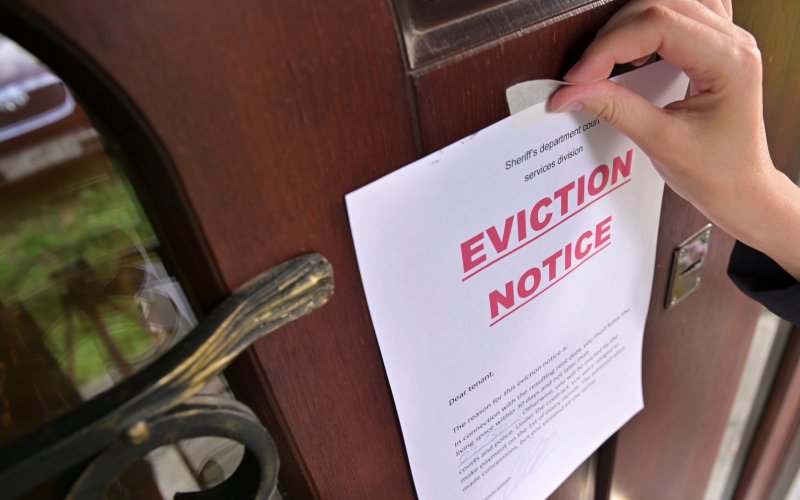Last Updated on November 26, 2024 by CREW Editorial
Being a landlord in Saskatchewan comes with unique rights and responsibilities that protect your property investments. The province’s Residential Tenancies Act outlines specific legal safeguards designed to help property owners maintain their rental units while ensuring fair treatment for both landlords and tenants.
As a Saskatchewan landlord, you’ll find essential protections covering rent collection, property maintenance standards, and eviction procedures. These legal measures allow you to address common issues like late payments, property damage, or lease violations effectively. Whether you’re managing a single unit or multiple properties, understanding these legal protections is crucial for your success in the rental market.
Understanding Landlord Rights in Saskatchewan
Saskatchewan law provides specific protections for landlords through comprehensive legislation and regulations. These legal safeguards establish clear guidelines for rental property management and tenant relationships.
Legal Framework and Key Legislation
The Residential Tenancies Act, 2006 and The Residential Tenancies Regulations, 2007 govern landlord-tenant relationships in Saskatchewan. These laws define the rights, responsibilities, and obligations of landlords, creating a structured framework for rental property operations.
Protected Rights Under Saskatchewan Law
Saskatchewan landlords maintain specific rental increase privileges based on their organizational memberships. SKLA and NPHPS members receive a 6-month notice period for rent increases, while non-members follow a 12-month notice requirement.
| Organization Status | Required Notice Period for Rent Increase |
|---|---|
| SKLA/NPHPS Members | 6 months |
| Non-Members | 12 months |
Security Deposits and Rent Collection
Saskatchewan law establishes specific regulations for security deposits and rent collection to protect both landlords and tenants. These guidelines create a structured framework for financial transactions in rental agreements.
Maximum Deposit Amounts
Security deposits in Saskatchewan are limited to one month’s rent. Tenants pay 50% of the deposit when signing a fixed-term lease and have 2 months to pay the remaining balance after moving in.
Legal Methods for Rent Increases
Landlords must provide written notice for rent increases. SKLA and NPHPS members give 6-month notices while non-members give 12-month notices. The rent increase amount isn’t restricted but must align with market rates.
| Tenant Action | Timeline |
|---|---|
| Initial Deposit Payment | 50% at lease signing |
| Remaining Deposit | Within 2 months of move-in |
| SKLA/NPHPS Notice | 6 months before increase |
| Non-member Notice | 12 months before increase |
Property Access and Maintenance Rights
Saskatchewan landlords possess specific rights to access rental properties under The Residential Tenancies Act. These rights enable property maintenance responsibilities while protecting tenant privacy.
Entry Notice Requirements
Landlords must provide written notice 24 hours before entering a rental unit for routine inspections or maintenance. The notice includes the date time purpose for entry. Written notices help document communication maintain transparency between landlords tenants.
Emergency Access Provisions
Landlords can enter rental units without notice during emergencies like fires floods or burst pipes. Emergency access applies when immediate action prevents property damage protects tenant safety. Landlords document emergency entries detail circumstances requiring immediate access.
Key Data Points:
| Requirement | Timeline |
|---|---|
| Standard Entry Notice | 24 hours |
| Emergency Access | Immediate |
| Property Inspections | 24 hours |
| Maintenance Work | 24 hours |
Eviction Procedures and Tenant Removal
Saskatchewan’s Residential Tenancies Act outlines specific procedures for lawful tenant eviction. The Office of Residential Tenancies (ORT) oversees and enforces these regulations to protect both landlord and tenant rights.
Legal Grounds for Eviction
The ORT requires landlords to use official forms when serving termination notices. Valid eviction reasons include:
- Non-payment of rent
- Breach of rental agreement terms
- Property damage
- Illegal activities on premises
- Interference with other tenants’ rights
Notice Period Requirements
The notice period varies based on the eviction reason:
| Eviction Type | Required Notice Period |
|---|---|
| Non-payment of rent | 15 days |
| Lease violations | 30 days |
| Property sale | 2 months |
| Major renovations | 2 months |
Landlords must submit eviction applications to the ORT if tenants object to the notice. The Sheriff’s Office enforces approved possession orders through a formal writ.
Dispute Resolution Options
Saskatchewan landlords access specific legal channels to resolve tenant disputes through the Office of Residential Tenancies (ORT) or provincial courts. Each option provides structured processes for addressing rental conflicts effectively.
Role of the Office of Residential Tenancies
The ORT serves as Saskatchewan’s primary dispute resolution body for landlord-tenant matters. It handles cases up to $30,000 including rent arrears, damage claims, security deposit disputes. Landlords submit applications using ORT-prescribed forms to initiate proceedings for specific issues like rent increases or eviction orders.
Legal Action Through Courts
Provincial courts handle rental disputes exceeding $30,000 or matters outside ORT jurisdiction. Landlords file claims through the Court of King’s Bench for complex cases involving significant property damage, substantial monetary claims or appeals of ORT decisions.
Conclusion
Saskatchewan’s legal framework offers robust protections for landlords through comprehensive legislation and clear guidelines. You’ll find these protections essential for managing your rental properties effectively while maintaining positive relationships with your tenants. The province’s structured approach to landlord rights helps you navigate everything from security deposits to eviction procedures.
Remember staying informed about your legal rights and responsibilities is crucial for your success as a landlord. The Office of Residential Tenancies stands ready to help you resolve disputes and enforce your rights when needed. By leveraging these legal protections you can confidently manage your rental properties while ensuring fair treatment for all parties involved.









